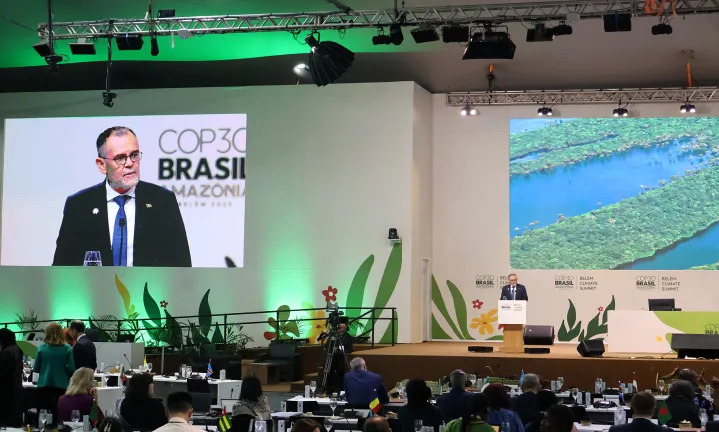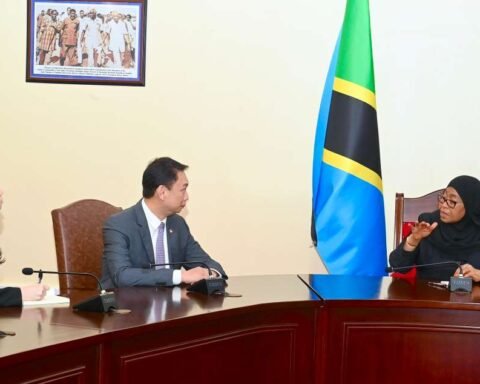Ethiopia has been informally selected to host the 32nd UN Climate Change Conference (COP32) in 2027, following backing from the Africa Group of Negotiators (AGN).
The announcement was made during the ongoing COP30 talks in Belém, Brazil, where negotiators are discussing urgent global climate issues.
Richard Muyungi, chair of AGN, told AFP that the group had thrown its support behind Ethiopia’s bid. “AGN has endorsed Ethiopia,” he said, emphasizing the continent’s unified backing. While the decision is not yet formally approved by all participating nations — a step expected during the closing of COP30 on November 21 — officials say the formal process is largely procedural.
Hosting COP32 in Addis Ababa represents a major milestone for Africa in global climate diplomacy. By bringing the conference to the continent, it allows African nations to place their priorities at the center of international negotiations, highlighting both their vulnerabilities and leadership in tackling climate change. Observers say this is a unique opportunity for Ethiopia to showcase its commitment to environmental sustainability and its capacity to host one of the world’s most important climate summits.
Also Read; UNESCO Declares Swahili Official Global Language
The United Nations Framework Convention on Climate Change (UNFCCC) rotates the hosting of COP meetings among regions to ensure a balanced representation of global perspectives. Africa has long advocated for stronger attention to its climate challenges, which include rising temperatures, desertification, and food insecurity. Ethiopia’s hosting could strengthen regional influence in shaping global climate strategies.
While formal ratification is still pending, preparations for hosting such a high-profile event would require significant logistical planning, including accommodations for thousands of delegates, security arrangements, and technical infrastructure for negotiations and presentations. For Ethiopia, the selection is not just a diplomatic win but a platform to highlight African solutions and innovations in climate adaptation and mitigation.
The move also reflects shifting global attention toward regions most affected by climate change. With African nations often experiencing the harshest consequences of environmental crises despite contributing minimally to global emissions, hosting COP32 offers both recognition and responsibility.







